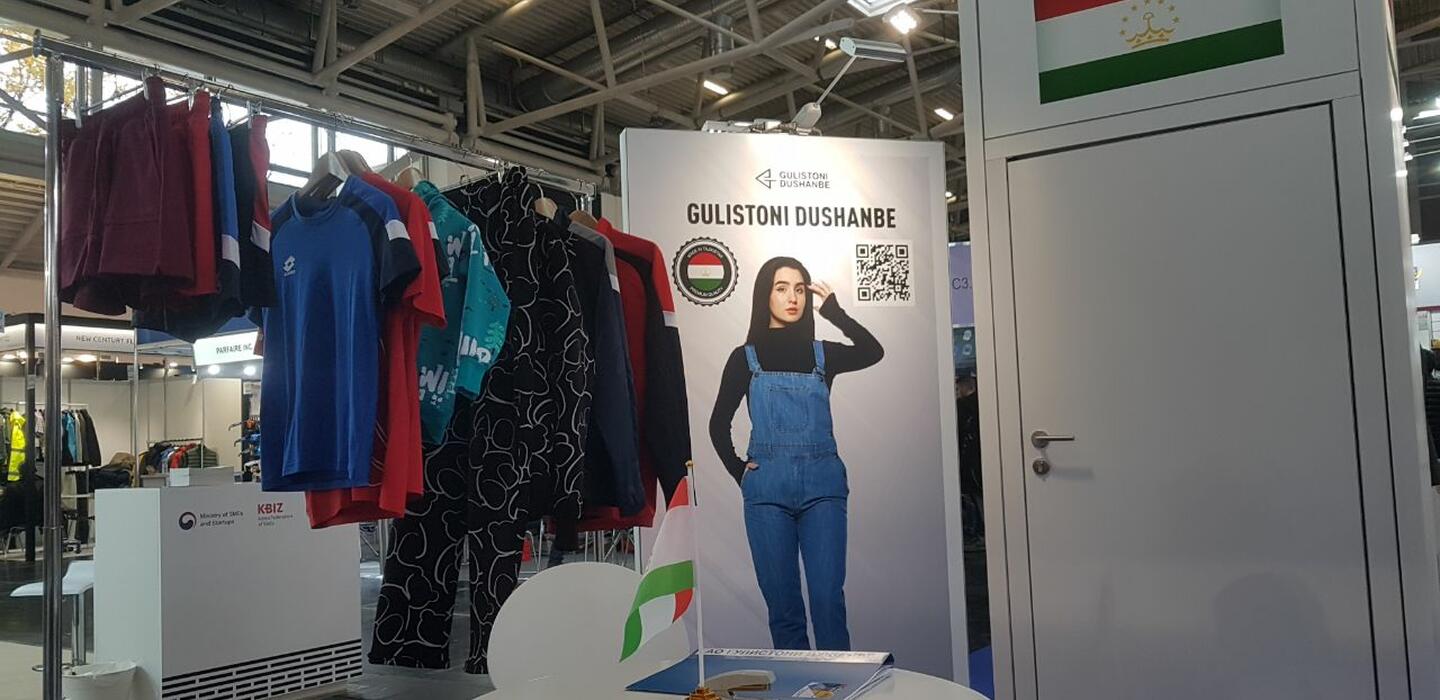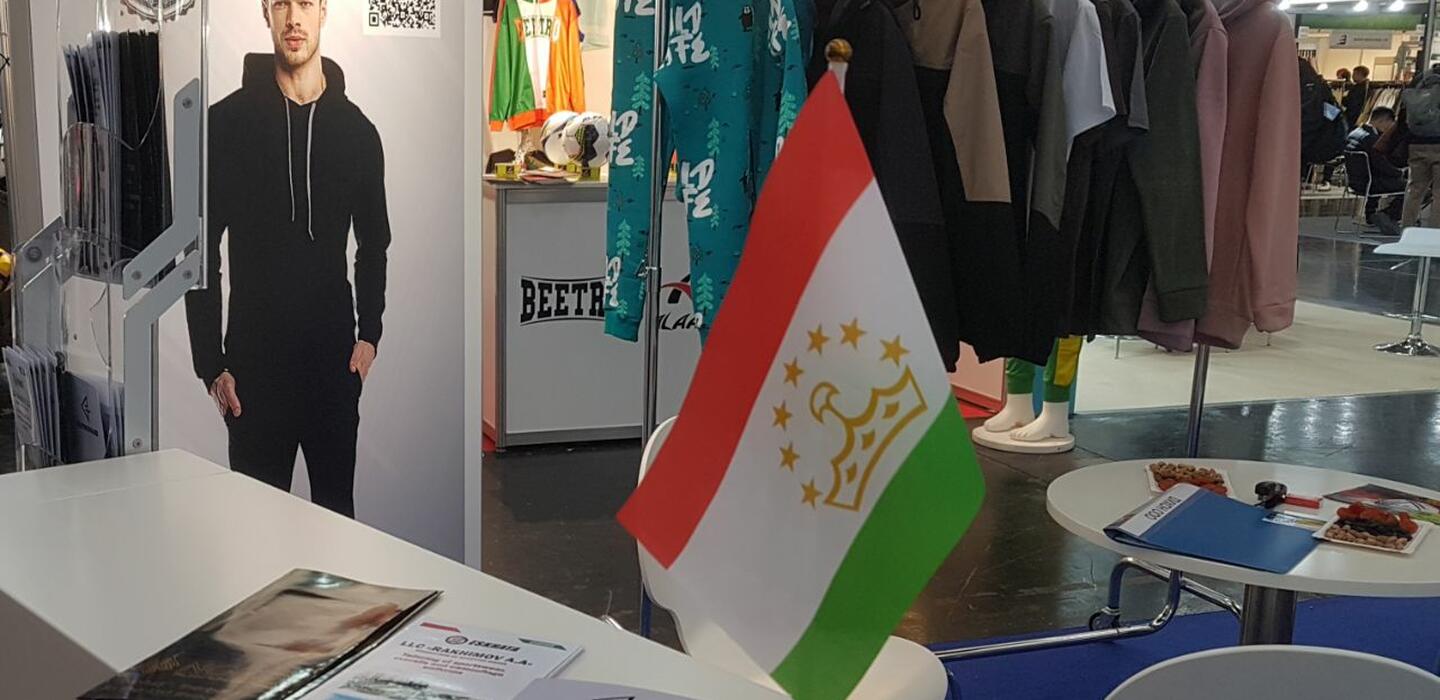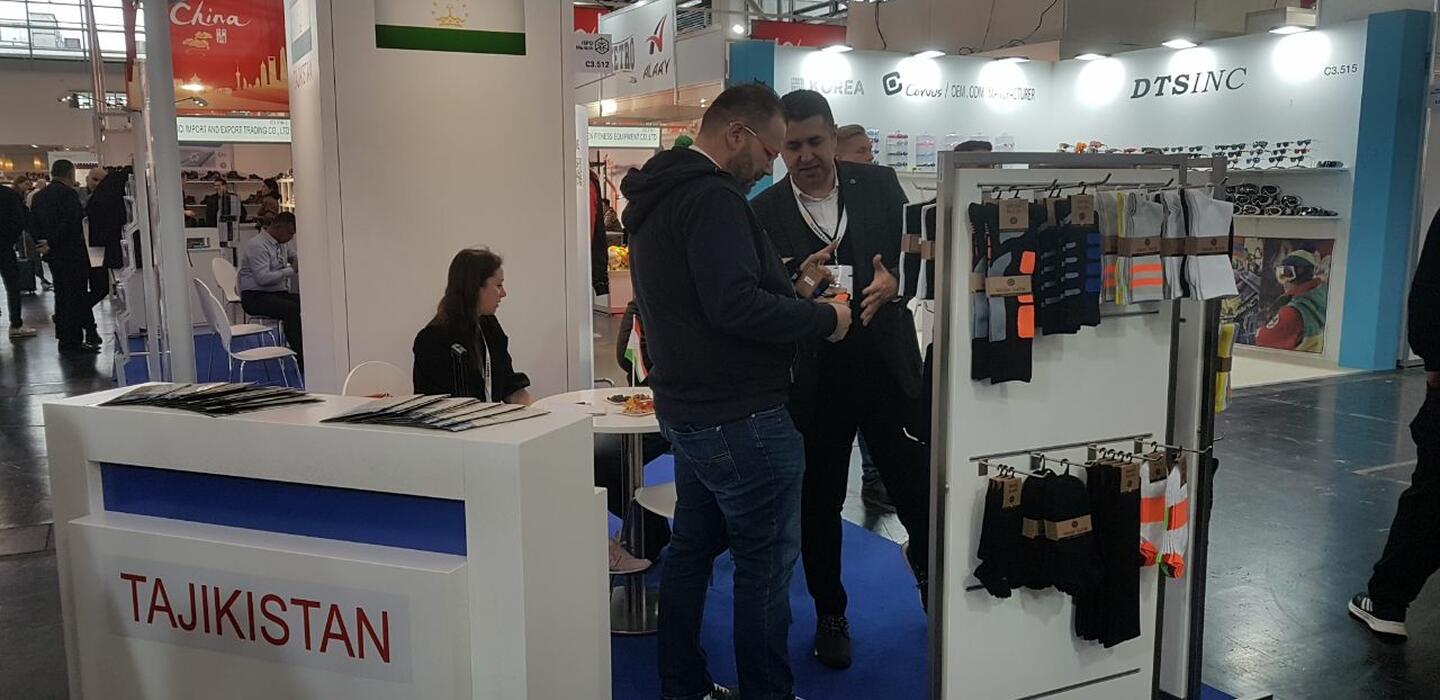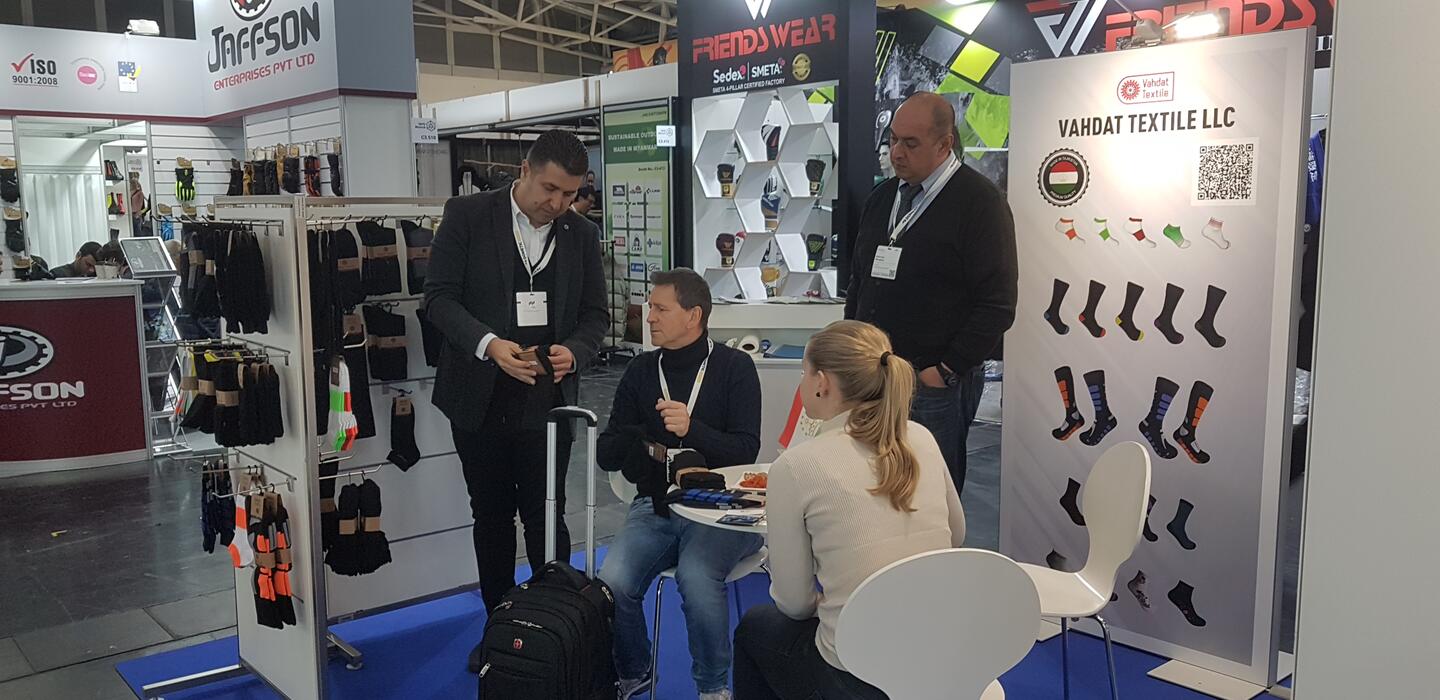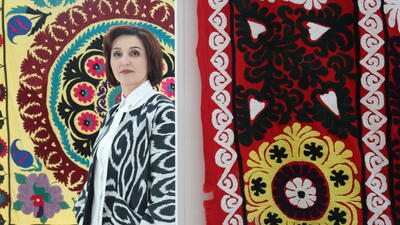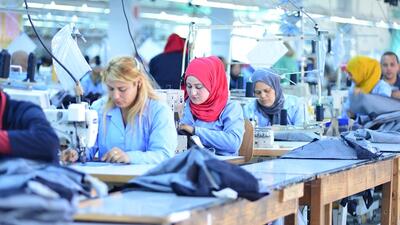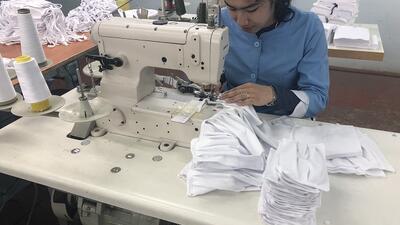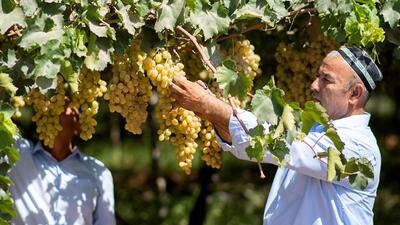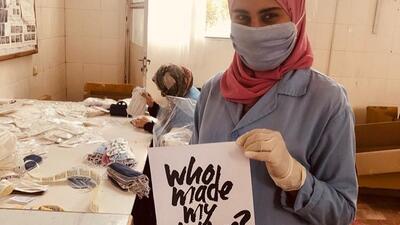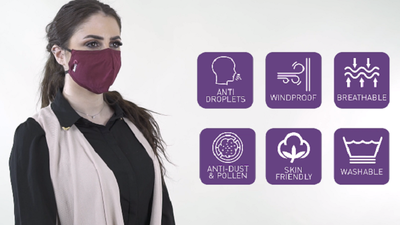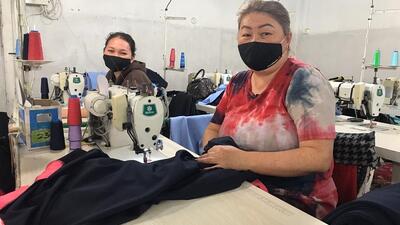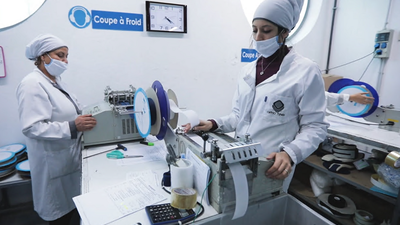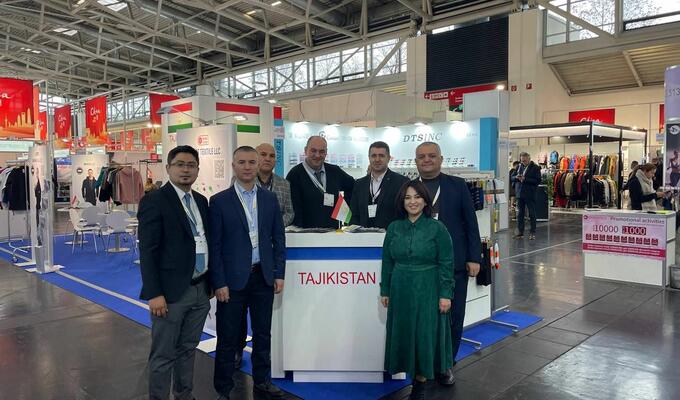
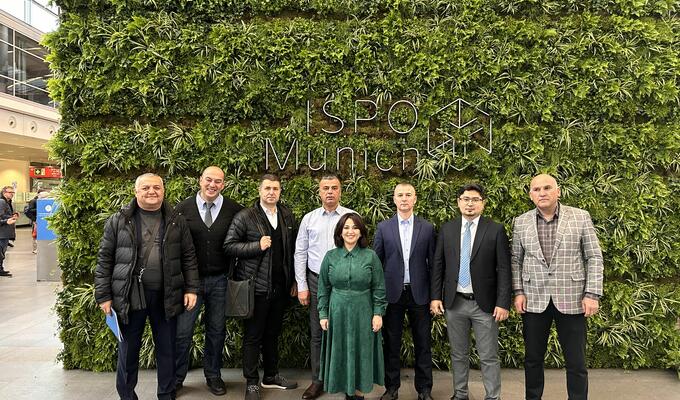
Bringing Tajik sportswear to Europe
Tajik companies joined the world’s biggest sportswear event in Germany for the first time
Tajik companies signed more than $1.8 million in initial agreements, and established 400 new business contacts when they attended ISPO Munich, the world’s largest trade fair for sportswear and sporting goods.
Four sportswear producers from Tajikistan joined over 1,500 exhibitors from all around the globe at the Internationale Fachmesse für Sportartikel und Sportmode (ISPO) in Munich.
Gulistoni Dushanbe, Nohid, Rahimov A.A., and Vahdat Textile exhibited sport socks, T-shirts, and polo shirts as well as martial arts clothes like kimonos, boxer clothes, and martial arts shoes. They also explored the latest and most innovative sports equipment and fashion, while seeing trends from world-renowned labels in indoor and outdoor sports, health, and fitness.
Tajik companies had visited the fair in 2020 through the International Trade Centre (ITC), with funding from the German Corporation for International Cooperation (GIZ), Switzerland and the European Union. This year the companies returned as participants to establish business contacts with European sports brands, wholesalers, and retailers.
“We were impressed and decided to return as exhibitors,” said Gokhan Emre, a production manager for Vahdat Textile. “I believe that the fair can be one of the important platforms for us to establish first business contacts with the European sports brands, wholesalers, and retailers.”
ISPO Munich is a business trade fair that’s considered the most important event in the industry. That makes it an ideal platform for establishing contacts and setting up business deals. Some Tajik sportswear producers already work with major brands like Greenhill and Decathlon. For those companies, ISPO is part of their long-term plan to diversify their customer base.
“It is a major step for the Tajik companies to diversify their export markets, while improving the quality of products to meet foreign market requirements and customers demand, to increase their export volume, and thus creating more stable jobs in the country,” said ITC National Project Coordinator Saidmumin Kamolov. “The fair will also serve as a knowledge sharing and networking platform for Tajik textile and clothing business partners.”
Takhmina Saidahmadzoda is the GIZ advisor for the Integrated Rural Development Project/TRIGGER, a project that works with small businesses and farmers in Tajikistan. It’s jointly funded by the European Union and the German Federal Ministry for Economic Cooperation and Development (BMZ).
“Facilitating access to high-quality markets for Tajik companies is one of our targets,” Saidahmadzoda said. “Participating in one of the world’s largest sport sector exhibitions such as ISPO Munich 2022 provides opportunity to Tajik companies to exhibit and present their textile products, entering new export markets, through establishing business contacts, whole participating to B2B meetings, exploring trends in textile and clothing sector.”
The GTEX programme believes that participation in international trade fairs provides good opportunities for beneficiary textile and clothing companies to become more competitive in regional markets. The fairs encourage new business contacts, trade in European and other markets, trend spotting, and knowledge on global and regional markets.
Two Tajik consulting companies, ACT Development Group in Dushanbe and Business Consulting Group in Khujand, prepared exhibitors for the trade fair. They also arranged the participation of the Tajik delegation and guided them during their trip.
About the GTEX Programme
The Global Textiles and Clothing Programme (GTEX) supports small businesses and business support organizations working in the textile and clothing industry in developing countries to increase their export competitiveness.
The GTEX programme is funded by the State Secretariat for Economic Affairs (SECO) of the Swiss Confederation and focuses on five priority countries (Egypt, Morocco, Kyrgyzstan, Tajikistan and Tunisia).




